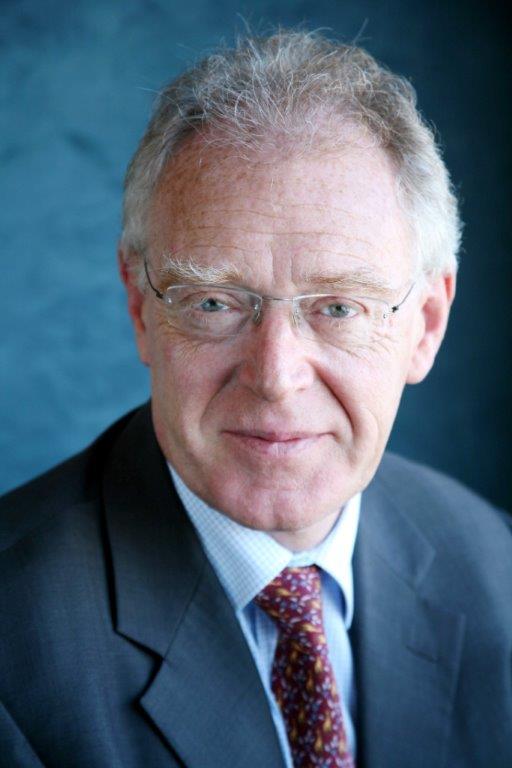A new economics residential for A-level and equivalent students funded by Bob Parker (1970, Economics) of the St John’s Development Board was a resounding success this September. This will serve as a template for establishing best practices for other subjects hosting residentials at St John’s. In addition to encouraging more young people to apply to study economics, Bob’s contribution will enable the College to benefit on a broader scale.
A group of 46 students from across England and Wales enjoyed a series of taster lectures with St John’s academics, Q&A sessions with current students, admissions information sessions, and workshops with academics and speakers at St John’s and departments across the collegiate University.
I enjoyed being able to speak to current students and get their feedback and advice on what life is like at Cambridge. – Sixth form student attendee
Bob also delivered a talk about next steps after graduation for students reading Economics which helped give the students a better sense of life in College and life after the course. We caught up with Bob to hear more about his experiences at St John’s and take a look back at his career.
Why did you choose to fund the residential in economics?
I am a lobbyist for economists which makes me biased. I always think that economics is the best profession and the most interesting and the most varied. I learned last year that these residentials had taken place for other subjects. I said, why aren’t we doing this weekend for economists? This is the first one that we are having for economists, and I hope that we will do this every year in the future going forward.

What is the Development Board?
The Development Board is an advisory group of St John’s alumni from diverse professional backgrounds, including law, business, engineering, and finance. The Board plays a key role in fostering relationships with alumni and supporting the College’s fundraising efforts. Board meetings have a major focus on fundraising to support students, research, and maintenance of historic buildings of the College.

What was your time like at St John’s?
My three years here were great. I enjoyed every moment of it. Was it challenging? Yes, but it was challenging in an incredibly positive way.
The beauty of the Economics course here is its diversity, whether you do industrial economics or environmental economics, or even behavioural economics. I have an interest in what makes markets work, and what makes investors behave as they do. The advantage of the Cambridge Economics course is its choice. So, if you want to focus on economic history, you can if you want to focus on industrial economics as it relates to the huge developments we are seeing now in the tech industry at AI, you can do that. If you want to be super nerdy like me and focus on mathematical economics, you can do that as well.
Once you leave Cambridge, the alumni network is great. It’s not just a social network. It is particularly good for career networking. For instance, some startups, whether it be in tech or other areas, have evolved from the alumni just getting together and kicking ideas around.

What did you do when you graduated from St John’s?
In 1973 the economy was teetering on the verge of recession. Labour unrest was significant. Inflation was high. Sounds like 2025 but I believe perhaps 2025 is not quite as bad. In one quarter in 1974, when annualized inflation in this country was 54%, we were heading towards hyperinflation.
I was offered various jobs in the City of London because I wanted to use my Economics degree to work in capital markets. And the average wage offered by what were then called merchant banks (investment banks) was £1500 a year. I found a bank that said they wanted to send me to France for three years, and they would pay me £6000 a year. Message number one is, do not worry about being overpaid. The second message is, think global. If somebody offers you a job in New York or a job in Silicon Valley, or a job in Shenzhen– take it. There are some interesting jobs out there.
I worked in corporate finance for three years in France. I spent an awful lot of time on debt restructuring. The bank I worked for had lent an awful lot of money to the steel industry in Lille and Roubaix, which now has disappeared. They loaned an awful lot of money to real estate on the South coast, which also went bankrupt. They had also lent an awful lot of money to the wine industry in Bordeaux. You would think it is impossible for the wine industry to go bankrupt, but in 1974 the French wine industry did. So I learned about crisis management in economics.
When I came back from France in the mid ‘70s and I was head hunted by Rothschild to do exactly what I wanted to do, which was to work on the foreign exchange markets and the capital markets. This was split between research on European markets, and my clients who were in Asia and California.
After this, I joined Credit Suisse First Boston, which was a fantastic investment bank. It was a mixture of Credit Suisse in Switzerland and the First Boston corporation in the States. In London they had no asset management business, so they asked me and a couple of other people to start this up. This included working with the Italian government on how to manage their debt. We were also advising and managing the Swedish government on their debt. So, it wasn’t just asset management. We also set up a joint venture in China, which goes by the wonderful name of ICBC Credit Suisse, asset management.
What advice would you give to someone wanting to get into asset management, or a financial role?
The asset management business is divided into the exceptionally large firms and some smaller firms, whether they are hedge funds or private equity businesses. It is important to do your research. I would look at some of the good big, big firms, or some of the high-quality hedge funds. Or you may want to look at specialist areas. There are some great private equity and real estate businesses to look at.



